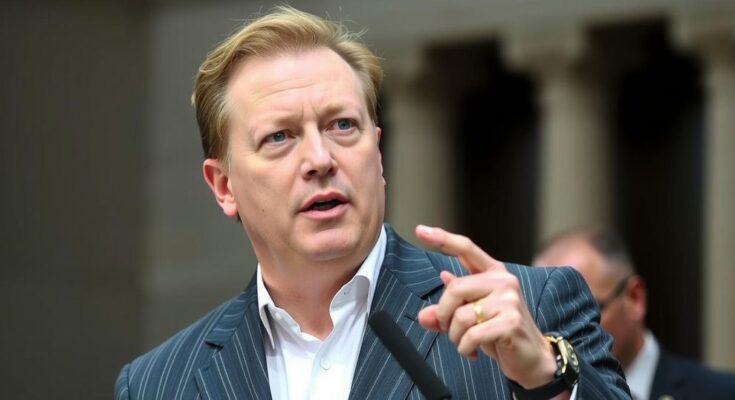Elon Musk’s endorsement of Germany’s far-right AfD party has stirred controversy, prompting the German government to accuse him of trying to influence the upcoming federal elections. Musk claims the AfD is crucial for Germany’s future prosperity, igniting a debate about free speech and foreign political influence.
In a recent controversy, Elon Musk’s support for Germany’s far-right party, AfD (Alternative for Germany), has been met with backlash from the German government, which accused him of attempting to influence the upcoming federal elections scheduled for February. According to a spokesperson for the German government, Musk’s expressions of support constitute an effort to sway public opinion during a critical electoral period. While acknowledging Musk’s right to share his views, the spokesperson remarked that such opinions could encompass “the greatest nonsense.”
Musk’s comments were made in a piece published in the Welt am Sonntag, where he argued that the AfD represents a crucial opportunity for Germany, claiming, “only the AfD can save Germany.” He asserted that the party can steer the nation toward a future characterized by economic prosperity, cultural integrity, and technological innovation. Moreover, Musk contended that his investment in Germany grants him the right to critique the country’s political landscape.
Germany is set to hold parliamentary elections in February, and foreign influence in such critical national processes has become a contentious issue. The far-right AfD, which Musk has endorsed, is often labeled as extremist, a characterization that has sparked significant debate in German media. Musk’s previous support for Donald Trump raises questions about his potential impact on political climates beyond the United States, highlighting a pattern of controversy surrounding his public statements and endorsements.
The German government’s reaction to Elon Musk’s support for the AfD underscores the heightened sensitivity regarding foreign influence in national elections. Musk’s strong statements and the ensuing debate on free speech within Germany indicate the complexities surrounding political expression, especially by internationally recognized figures like Musk. As the federal elections approach, the implications of Musk’s commentary remain to be seen, both for the AfD and the broader political landscape in Germany.
Original Source: www.hindustantimes.com




